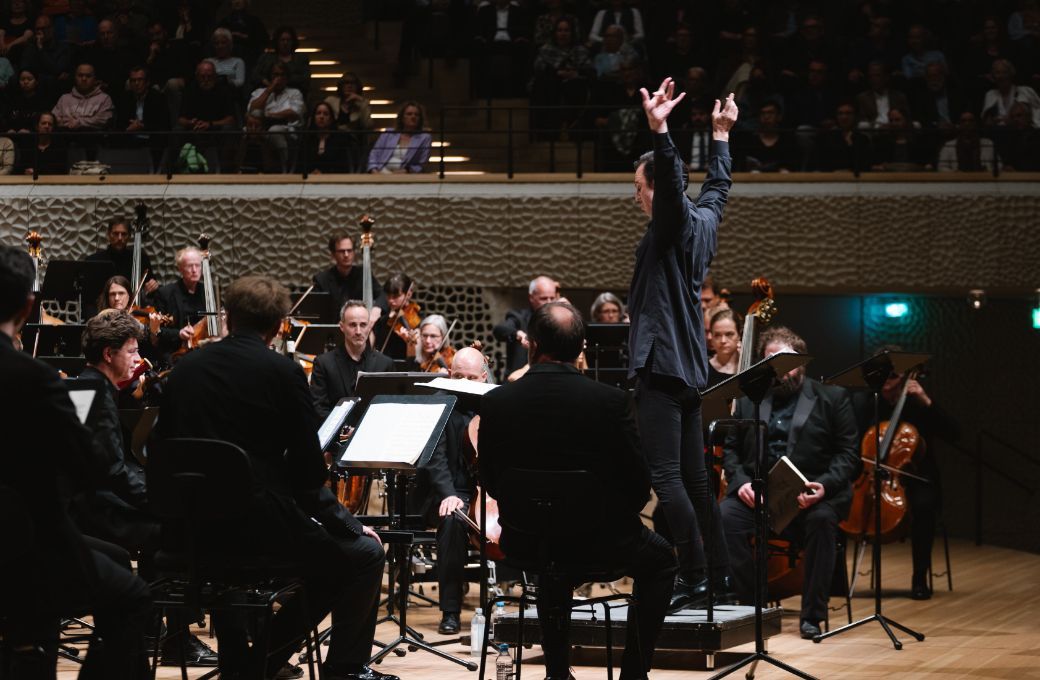Love and death are the two main subjects of all art; in the finest exemplars these two ideas are closely interwoven. As in Britten’s War Requiem, written to celebrate the consecration of Coventry’s new cathedral in May 1962. It successfully marries Britten’s most personal genre, the song cycle, with the much larger form of what is essentially a dramatic funeral symphony. It also breaks new ground in interweaving the Latin text of the Requiem Mass with words from the greatest English poetic voice of World War 1, Wilfred Owen. Both before the premiere as well as during and after it the work was attached to controversy, the composer himself famously describing the cathedral acoustics as “lunatic”. What gave this performance an additional frisson was the conductor himself: Teodor Currentzis, in trouble with a number of European promoters because of his supposedly ambivalent stance over Putin’s war in Ukraine.

In purely musical terms, there is little that is consolatory in Britten’s work. It is bleak, austere, with few elements of theatricality. Like Owen’s poetry, it conveys pain and suffering. This start was sombre and grief-laden, the sharp orchestral dissonances presaging cataclysmic dimensions, the staccato choral voices at the start of the Dies Irae offering no reassurance. The 90-odd choristers, drawn from the London Symphony Chorus and SWR Vokalensemble Stuttgart, were less than the 200 that the composer specified, yet they produced a flexible and compact body of sound, with thrilling power for the “Libera me, Domine” of the concluding movement. As with previous performances in this hall of choral works involving a boys’ choir, I have to question the positioning of the Knabenchor Hannover. They were on a much higher level than the other forces, as required, but faced inward across the performing space, so that words were frequently lost. However, they delivered their “In paradisum deducant te Angeli” with celestial warmth.
Currentzis, conducting his own SWR Symphony Orchestra, never stints on visceral intensity. It was palpable in the torrents of sound he unleashed in passages for full orchestra and chorus in the Dies Irae and Libera me movements. Elsewhere I was struck by the care and attention he lavished on sonority, relishing the wind harmonies reminiscent of Messiaen’s birdsong, the tintinnabulation of tubular bells and keyboard percussion at the start of the Sanctus, and the moments of chamber-like delicacy such as the interplay of harp, flute and bassoon for the “When lo! An angel called him out of heaven” in the Offertorium. Currentzis had grouped the members of the chamber ensemble in a semi-circle around him, again not following the composer’s wishes, but thus enhancing moments of intimacy and inwardness, especially in the Libera me. His brass players were simply magnificent: bright-toned and secure throughout, with bugle-like trumpets, horns and lower brass blazing ferociously.
This is a work in which words matter enormously. I was pleased to see that Currentzis had chosen for his soloists a Russian soprano, an English tenor and a German baritone, in keeping with Britten’s original intention. Irina Lungu has a big voice and soared effortlessly for her “Lacrimosa dies illa” in the Dies Irae, but betrayed a slight excess of Slavic vibrato and squally tendencies at times. Matthias Goerne’s grainy delivery, often in the guise of an Old Testament prophet, had weight and dignity. In duet with Allan Clayton for the long concluding sequence he offered poise and serenity. Clayton himself was mesmerising, displaying bell-like clarity and with superb articulation. His unearthly sounds, bleached of all colour, for his “It seemed that out of battle” were a marvel to behold, chilling, unsettling and admonitory.


